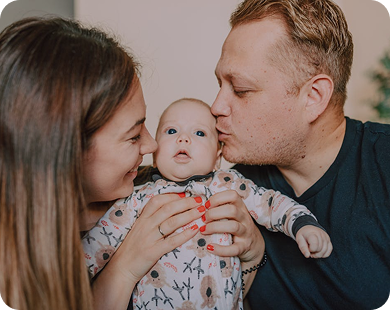Discovering that your egg retrieval yielded fewer eggs than expected can feel overwhelming, but it doesn't mean your fertility journey ends here. While disappointing, a lower egg count doesn't automatically determine your chances of success, and there are several paths forward to help you achieve your dream of parenthood.
Understanding Why Egg Retrieval Numbers Vary
Your ovarian response during IVF stimulation can differ from initial predictions for several reasons. Even with careful monitoring and personalized protocols, ovarian stimulation doesn't always produce the expected number of mature eggs.
The relationship between follicle count on ultrasound and actual egg retrieval numbers isn't always one-to-one. Some follicles may be empty, while others might contain immature eggs that cannot be used for fertilization.
| Factor | Impact on Egg Count | Frequency |
|---|---|---|
| Empty follicles | Reduces final egg count | 10-15% of follicles |
| Immature eggs | Cannot be fertilized immediately | 15-20% of retrieved eggs |
| Ovarian response variation | Individual hormone sensitivity | Patient-specific |
| Timing of trigger shot | Affects egg maturation | Protocol-dependent |
Common Reasons for Lower Than Expected Egg Counts
Several medical and biological factors can contribute to retrieving fewer eggs than anticipated during your IVF cycle.
Age-Related Factors
As women age, both egg quantity and quality naturally decline. This process, called ovarian aging, affects how your ovaries respond to fertility medications. Women over 35 may experience more significant variations between predicted and actual egg counts.
Ovarian Reserve Issues
Your AMH levels and antral follicle count provide estimates of your ovarian reserve, but individual responses can still vary. Some women with seemingly good reserves may still produce fewer eggs than expected.
Medication Response
Your body's response to fertility medications can be unpredictable. Factors like body weight, previous medication history, and individual hormone sensitivity all play roles in determining your response.
What Your Egg Count Really Means for Success
The number of eggs retrieved is just one piece of your fertility puzzle. Quality often matters more than quantity when it comes to achieving a successful pregnancy.
According to recent studies, even cycles with fewer retrieved eggs can result in successful pregnancies when the eggs are of good quality (Polyzos & Devroey, 2011). The key factors that influence your success include:
| Success Factor | Impact Level | What It Means |
|---|---|---|
| Egg quality | High | Healthy eggs have better fertilization rates |
| Fertilization rate | High | Percentage of eggs that successfully fertilize |
| Embryo development | High | Quality of resulting embryos |
| Endometrial receptivity | Medium | Uterine lining readiness for implantation |
| Total egg number | Medium | More eggs provide more opportunities |
Quality Over Quantity Principle
Research shows that women who produce fewer but higher-quality eggs can achieve similar success rates to those with higher egg counts but lower quality. This is particularly relevant for women over 35, where egg quality becomes increasingly important.
Immediate Next Steps After Lower Egg Retrieval
When your egg retrieval yields fewer eggs than expected, your fertility team will immediately assess the situation and adjust your treatment plan accordingly.
Laboratory Assessment
Your embryologist will evaluate each retrieved egg for maturity and quality. Even with fewer eggs, the focus shifts to maximizing the potential of what you have. Advanced techniques like ICSI may be recommended to optimize fertilization rates.
Fertilization Monitoring
The next 5-6 days become crucial as your medical team monitors embryo development. Each day provides valuable information about embryo quality and viability.
Treatment Options Moving Forward
Several paths remain available when your initial retrieval produces fewer eggs than hoped. Your fertility specialist will work with you to determine the best approach based on your specific situation.
Proceeding with Current Cycle
If your retrieved eggs fertilize successfully and develop into quality embryos, you may proceed with either a fresh or frozen embryo transfer. Even a single high-quality embryo can result in a successful pregnancy.
Additional Retrieval Cycles
Many patients benefit from multiple retrieval cycles to accumulate more eggs and embryos. This approach, called egg banking, can improve your overall chances of success. Your doctor might recommend:
| Cycle Approach | Best For | Considerations |
|---|---|---|
| Back-to-back cycles | Good responders with time constraints | Requires physical and emotional readiness |
| Modified protocols | Poor responders | Different medication combinations |
| Natural cycle IVF | Minimal stimulation candidates | Lower medication burden |
| Donor egg consideration | Significantly diminished reserve | Higher success rates available |
Protocol Adjustments
Your fertility specialist may recommend changes to your stimulation protocol for future cycles. These adjustments might include different medications, dosing schedules, or timing modifications.
Emotional Support and Coping Strategies
Receiving fewer eggs than expected can trigger feelings of disappointment, anxiety, and uncertainty about your fertility journey. These emotions are completely normal and valid.
Research indicates that emotional support significantly impacts treatment outcomes and overall well-being during fertility treatments (Frederiksen et al., 2015). Acknowledging and addressing these feelings is an important part of your care.
Managing Expectations
Understanding that fertility treatment involves variables beyond anyone's complete control can help you maintain perspective. Each cycle provides valuable information that helps refine your treatment approach.
Success Stories with Lower Egg Counts
Many patients who initially retrieved fewer eggs than expected have gone on to achieve successful pregnancies. These outcomes remind us that individual responses to treatment can vary significantly, and initial setbacks don't determine final results.
Clinical data shows that pregnancy rates per embryo transfer remain encouraging even when starting with lower egg numbers, particularly when embryos undergo genetic testing to ensure chromosomal normalcy.
Factors That Improve Outcomes
Several elements can enhance your chances of success even with fewer retrieved eggs:
| Improvement Strategy | Benefit | Implementation |
|---|---|---|
| Lifestyle optimization | Better egg quality | Nutrition, exercise, stress management |
| Supplement support | Cellular health improvement | CoQ10, folic acid, vitamin D |
| Advanced laboratory techniques | Maximized fertilization | ICSI, extended culture |
| Personalized protocols | Improved response | Customized medication regimens |
When to Consider Alternative Options
While many patients succeed with their own eggs after initial disappointments, some situations may warrant considering alternative approaches to building your family.
Donor Egg Consideration
If multiple cycles continue to yield very few eggs or if egg quality remains a significant concern, donor eggs can provide an excellent path to parenthood. This option offers higher success rates and may be recommended when:
| Situation | Recommendation Timeline | Success Rate Improvement |
|---|---|---|
| Consistently low egg counts | After 2-3 cycles | Significant increase |
| Advanced maternal age | Individual assessment | Age-independent rates |
| Poor egg quality indicators | Based on embryo outcomes | Higher quality embryos |
| Time constraints | Immediate consideration | Faster path to pregnancy |
Shared Risk Programs
Some clinics offer shared risk or refund programs that can provide financial protection and peace of mind when facing uncertain outcomes. These programs often include multiple treatment cycles and various family-building options.
Optimizing Future Cycles
If you decide to pursue additional egg retrieval cycles, several strategies can help improve your outcomes and potentially increase egg yield.
Lifestyle Modifications
The months leading up to your next cycle offer opportunities to optimize your health and potentially improve egg quality. Focus areas include nutrition, exercise, and stress management.
Supplement Protocols
Your fertility specialist may recommend specific supplements to support egg quality and overall reproductive health. These typically need 2-3 months to show effects, as eggs take approximately 90 days to mature.
Protocol Refinements
Based on your response to the initial cycle, your doctor may suggest modifications to medication types, dosages, or timing. These adjustments aim to optimize your individual response while minimizing side effects.
Financial Considerations and Planning
Lower than expected egg counts may impact your financial planning for fertility treatment. Understanding your options can help you make informed decisions about moving forward.
| Financial Aspect | Consideration | Planning Strategy |
|---|---|---|
| Additional cycles | Cumulative costs | Budget for multiple attempts |
| Insurance coverage | Policy limitations | Verify benefit details |
| Shared risk programs | Upfront investment | Compare total costs |
| Alternative treatments | Different cost structures | Evaluate all options |
Questions to Ask Your Fertility Team
When facing lower than expected egg counts, having open communication with your fertility team becomes essential. Consider asking these important questions:
| Question Category | Specific Questions | Why It Matters |
|---|---|---|
| Immediate next steps | What happens to my retrieved eggs now? | Understanding current cycle outcomes |
| Future planning | Should we modify my protocol for next time? | Optimizing future attempts |
| Alternative options | When should we consider donor eggs? | Timeline for decision-making |
| Success expectations | What are my realistic chances moving forward? | Setting appropriate expectations |
Frequently Asked Questions
Can I still get pregnant with fewer eggs than expected?
Yes, absolutely. Pregnancy success depends more on egg and embryo quality than total numbers. Many patients achieve successful pregnancies even when their retrieval yields fewer eggs than initially predicted.
Should I do another cycle immediately?
This depends on your individual situation, including your response to medications, overall health, and emotional readiness. Your fertility specialist will help determine the optimal timing for additional cycles based on your specific circumstances.
How many eggs do I really need for IVF success?
While more eggs generally provide more opportunities, there's no magic number that guarantees success. Some patients achieve pregnancy with just one or two high-quality embryos, while others may need multiple cycles regardless of egg count.
Will my insurance cover additional cycles?
Insurance coverage varies significantly by provider and policy. Review your benefits carefully and discuss coverage details with both your insurance company and fertility clinic's financial counselors.
How can I improve my egg count for next time?
Focus on optimizing your overall health through proper nutrition, regular exercise, adequate sleep, stress management, and appropriate supplementation. Your doctor may also adjust your medication protocol.
Moving Forward with Confidence
Receiving fewer eggs than expected during your retrieval can feel like a setback, but it's important to remember that this is just one data point in your fertility journey. Many patients who face this situation go on to achieve successful pregnancies through various paths.
The key is working closely with your fertility team to understand your options, optimize your health, and make informed decisions about your next steps. Whether that involves additional cycles with your own eggs, considering donor options, or exploring other family-building alternatives, you have choices available.
Remember that fertility treatment is often a process rather than a single event. Each cycle provides valuable information that helps refine your treatment approach and brings you closer to your goal of building your family.
Your emotional well-being throughout this process is just as important as the medical aspects of your care. Don't hesitate to seek support from counselors, support groups, or other resources that can help you navigate the emotional challenges of fertility treatment.
At Avida Fertility, we understand that every patient's journey is unique, and we're committed to providing personalized care that addresses both your medical needs and emotional well-being. Our experienced team uses the latest technologies and techniques to maximize your chances of success, regardless of the challenges you may face along the way.
Considering IVF treatment? Avida Fertility is here to support and guide you on your fertility journey. Reach out today for a personalized consultation and take the first step towards building your family with confidence.






.png)







.svg)
.svg)
